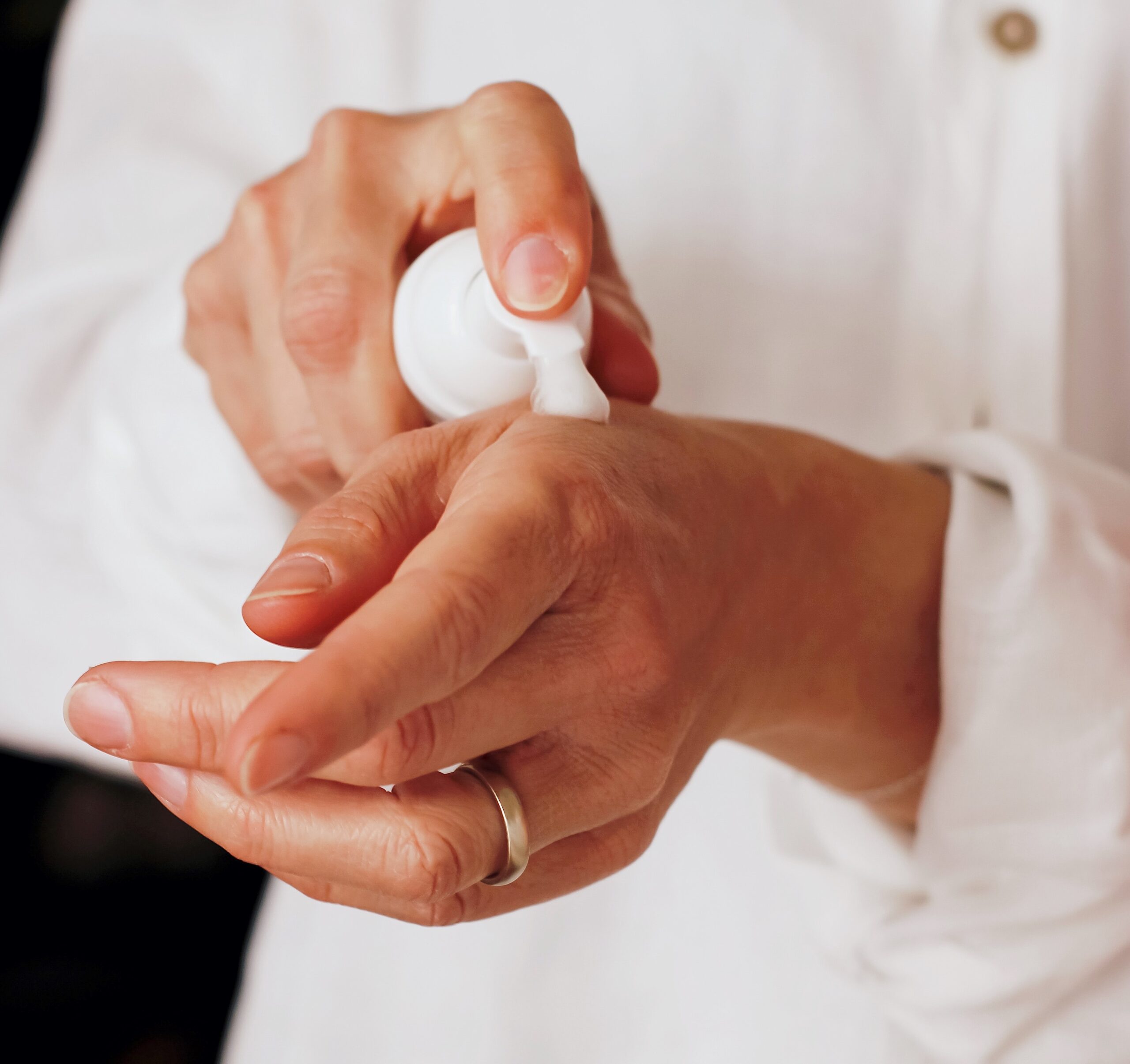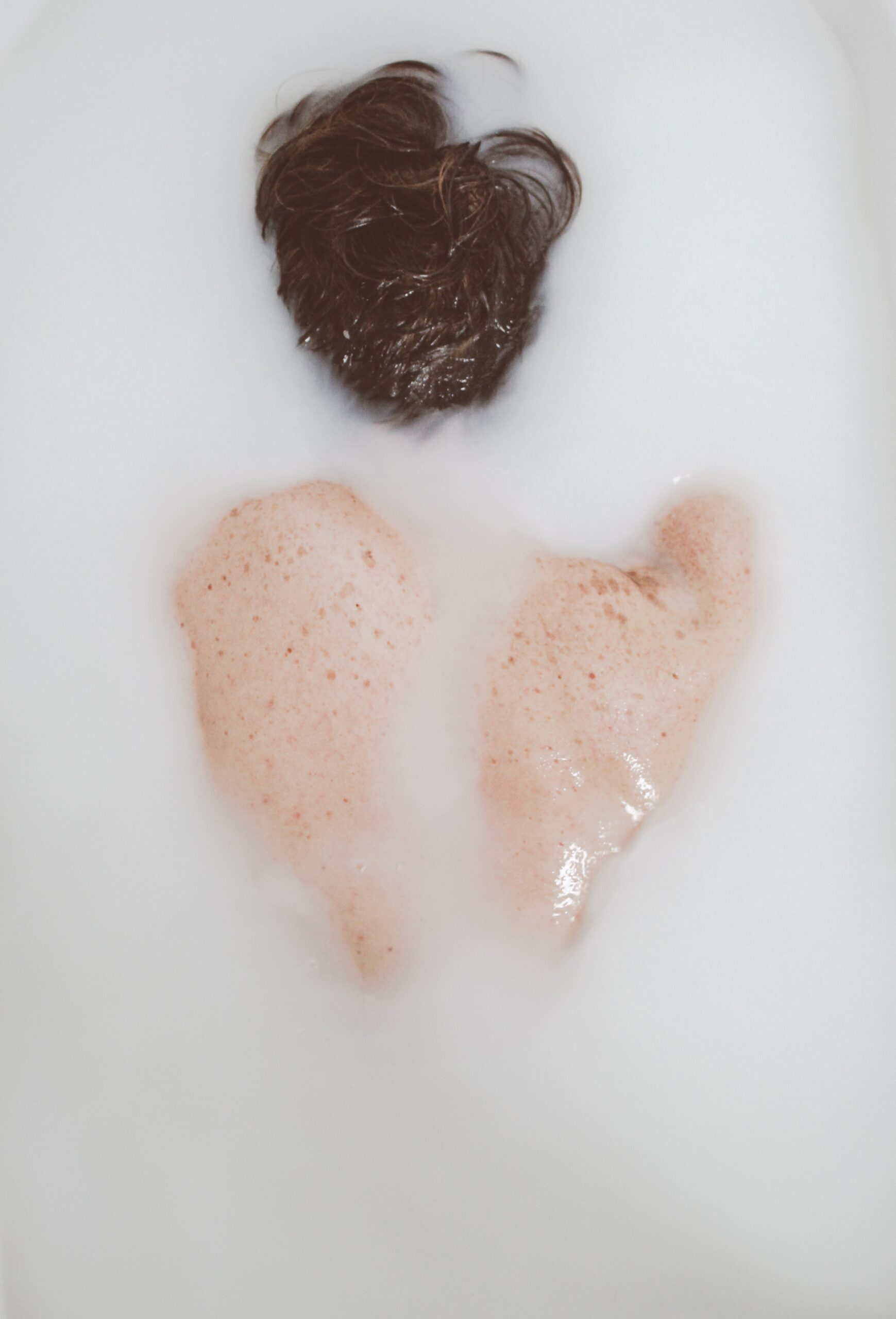Itching is a topic that really gets under the skin of people with Gilbert’s Syndrome.

One of the most common questions I hear, from people with Gilbert’s Syndrome, is ‘does anyone else get really itchy???!’ The answer is ‘absolutely’! Many people with Gilbert’s Syndrome get itchy skin.
But WHY and WHAT can you do about it?
Why?
The reason it happens is up for speculation. It has been recognised, for over 2,000 years, that jaundice (which many people with Gilbert’s Syndrome will have at some point) is linked to itching (technically known as ‘pruritis’).
Is it the prickly nature of bile salts? Is it toxins building up in your body as your liver isn’t dealing with them properly? Your skin is your second largest de-tox organ, and if your liver isn’t doing its best, then your skin may be acting as back up. Are there histamines, serotonin or other chemicals produced by the body involved?
There’s no doubt that bilirubin build up (one of the main Gilbert’s Syndrome symptoms) above a certain level does cause intense itching, usually at the point when you can see jaundice in your skin or eyes.
‘Itch is present in 80%-100% of patients presenting with cholestasis and jaundice’ https://www.ncbi.nlm.nih.gov/pmc/articles/PMC4316083/ You can find out more about the way your body may be generating the itch sensation in this article.
Not Gilbert’s Syndrome?
Of course – it may not be your Gilbert’s Syndrome at all. Lots of things can cause the sensation of itching:
Sometimes it’s an allergic reaction, or eczema, or even a pinched nerve. Pregnancy and some medications can also cause itching. Itching can be a side effect of medication that’s not being effectively processed in your liver, as a result of your Gilbert’s Syndrome. Do keep an eye on symptoms when taking any new prescription drug and speak with your doctor if you have any unusual or unpleasant sensations. Air conditioning or your age can affect your skin’s dryness and sensitivity. You can also develop a response to a detergent, wash or perfume even if you’ve used it for years. Don’t assume it’s always Gilbert’s Syndrome.
This article provides some hints and tips to try – it is not medical advice and I am not medically qualified. Always speak to your medical professional before changing a health or medication routine, or if you are getting unpleasant side effects or symptoms.
What can I do?
Most importantly – how do you stop it when it’s driving you crazy!
Once you’ve read this article you should be better equipped to:
- Deal with the liver function if that’s the root cause
- Soothe and comfort the skin to reduce the itch
- Give your skin the best chance to be irritant free
Look after your liver function:
If this is a Gilbert’s Syndrome related symptom, then Step One in managing a flare up of GIlbert’s Syndrome remains the same. In headlines : sleep, drink water, eat nutritious low fat, low sugar whole foods and relax. If you are being triggered by something in your environment (medication, chemical fumes etc), then remove or reduce it if you can.
Usually symptoms will last just hours or a couple of days if you can take time to manage your lifestyle. This isn’t always possible of course – you may have caring responsibilities, a shift pattern, other chronic illnesses, be travelling or under a great deal of stress. Whatever your situation, be kind to yourself and do what you can to make the most of your situation to try to include some of those elements of good self care.
You can read more about dealing with symptoms and lifestyle across this website and take the Essentials of Gilbert’s Syndrome course (find out more here) to get foundational tips to manage your life better with Gilbert’s Syndrome.
Meanwhile – let’s deal with the itch!
This is really important, before we go any further, DO NOT SCRATCH! All this does is irritate the skin and you’ll end up with a longer term problem whilst the skin heals. If you DON’T scratch then the itch will stop as your Gilbert’s Syndrome symptoms settle down (or when you remove the irritant).
If you DO scratch, then you’ll be dealing with skin that is irritated, sore and healing and will itch even MORE!
You may find, like me, that you scratch at night or without even thinking about it. Try to train yourself to notice before you damage your skin. At night, you could cover the itchy skin with clothing or wrap some fabric around it so you don’t scratch whilst asleep. Some people even wear a light pair of gloves to prevent their nails from scratching their skin whilst asleep.
You might be in tears trying not to scratch – I’ve been there. Here are some things that can help:

Nati Melnychuck unsplash
PS I have sourced examples of products for you so that you can easily find them – there’s no obligation to buy these, and you might find them cheaper elsewhere. These links may provide a small affiliate fee, at no extra cost to you, but which will help keep this website running.
Creams and ointments –
There are a number of things I have found which help my skin feel less itchy. I have other conditions which result in me having soft and sensitive skin and these help me. Creams with colloidal oatmeal, such as Aveeno, are really soothing. The oatmeal helps inflammation and provides a barrier that protects irritated skin. You can buy colloidal oatmeal as a separate powder and add it to a bath or your own cream.
Aveeno is a product works well for deep moisturisation, and has a ‘triple oat complex’ plus shea butter, which you can buy here https://amzn.to/3S4QJWj I recently bought some and it’s working really well for me.
For a lighter version, I use this https://amzn.to/3DMkR4r
Sudocrem is also soothing to skin. It’s really a universal antibacterial cream that is even suitable for babies, and so very kind to your body. The lavender in it is both soothing and has a nice odour. A little goes a long way. It tends to sit on the skin and has a white residue, so may be better for smaller areas, or under clothing for larger areas. It’s also really affordable! You can buy it in supermarkets, chemists or here https://amzn.to/3DLfHFL
E45 have an itchy skin cream which has a topical anaesthetic that reduces itch. https://amzn.to/3xJ4fH8
Some antiseptic creams also have topical anaesthetics, such as Savlon https://amzn.to/3SjWq2z . I would suggest caution again, as there are many chemicals and other ingredients which your body might not process well and which could just add to the problem. Perhaps try other creams and gels first, such as colloidal oatmeal. If you have broken skin, perhaps from scratching, then this would help with both relieving the sensation and helping to protect the skin from infection.
Gels and creams with aloe vera can also be soothing. Aloe vera has anti inflammatory and healing properties. Watch out for the added ingredient of menthol though. Many aloe vera preparations are sold with menthol to help cool sunburnt skin, but menthol is poorly processed by people with Gilbert’s Syndrome and it can make you feel unwell. Other preservatives and chemicals can also detract from the benefit of using a natural plant such as aloe. A preparation such as this gel may be a good option to avoid too many added ingredients https://amzn.to/3qWdkZ8
Do test new products on a small amount of skin first though. A small percentage of users of the many aloe products on Amazon experienced red and sore skin after trying a new aloe brand. Do read reviews and decide for yourself. If you’ve already got an after sun cream with aloe vera that you’ve used before with no problems, then perhaps give it a try
Some people use hydrocortisone creams, which you can get from pharmacies /chemists /drug stores. I would suggest caution here as they can only be used for a short period. It is a steroid and works on the chemicals that cause itching and redness in the skin. Creams are designed for conditions such as eczema and rashes and can also cause thinning of the skin. (Preparations with antifungals are sold for athletes foot). There’s useful information about hydrocortisone here https://www.nhs.uk/medicines/hydrocortisone-skin-cream/ I would be interested to hear if you have used a hydrocortisone cream for an itch that is definitely just your Gilbert’s Syndrome, and whether it has worked.
Drugs –
Steroids (such as hydrocortisone and applied directly to skin), antihistamines and antidepressants. These can be prescribed or over the counter. I would suggest that they don’t tackle your Gilbert’s Syndrome and may not deal with the itch that relates to your liver function. They may be helpful by acting in another way, perhaps if you have an allergy, or another skin condition such as psoriasis or eczema for example. Your itching may not be down to your Gilbert’s Syndrome don’t forget. If they do help you, it would be great to hear about it.
Some other natural remedies –

Toa Heftiba unsplash
https://www.stylecraze.com/articles/effective-home-remedies-for-skin-itching/
Bathing with a cup of baking soda may help reduce skin acidity and prove soothing. Both available in most grocery stores.
Coconut oil in a bath, or massaged onto the skin may help. It has antiinflammatory and antimicrobial properties and is well absorbed. https://nationaleczema.org/blog/get-the-facts-coconut-oil/
For a solid (at room temperature) and unprocessed version with a mild coconut aroma, try this https://amzn.to/3S4hkTf
For a processed version which has no odour or taste you would need a refined version https://amzn.to/3dDGvxe . For one that stays a liquid, then a fractionated option would be your choice eg https://amzn.to/3UoFklE
Neem is a leaf widely available across India, Pakistan, Bangladesh and Nepal. It is also found in Africa and South America. This plant has been used in medicine for thousands of years. Neem has many properties, including antimicrobial, antifungal and anti-radical. It may even be analgesic (provide pain relief) and protect the liver (but these studies are in rats not people with Gilbert’s Syndrome). https://www.ncbi.nlm.nih.gov/pmc/articles/PMC4791507/
There are many claims for neem as a detox tool. It can be taken as powder, in capsules, in ointments or tinctures or teas. Like many herbal preparations there are few clinical studies of the effect in people, given drug companies aren’t going to make any money from it. Please do read any claims with caution. If you have tried neem, then do share your experience.
Here’s the oil – and if it doesn’t work for your itch, you can use it on your garden as an insect repellent! https://amzn.to/3xJCgH8
You can use this powder https://amzn.to/3fbKotE in a paste with some water on skin or hair, pop it in a tea or drink, or even brush your teeth with it.
Mint – some remedies include mint, but the principal cooling effect in mint is menthol, which is not processed well by people with Gilbert’s Syndrome. I am afraid I’ve only had negative effects from mint, peppermint and menthol myself. However, I’ve not tried mint as a herb on skin, plus I don’t seem to have problems with mint in toothpaste (probably as I try not to swallow it!), but mint tea or any food with mint gives me indigestion or makes me feel sick.
Do you have an experience with mint that you can share?
Other simple solutions that will help with itching and you to stay irritant free
- Wear soft comfortable clothes washed in an environmentally friendly sensitive skin detergent. The chemicals in your detergent could be adding to your itching issues. You can find lots of chemical free products over at The Vegan Kind supermarket.
- Clothes that are 100% organic cotton or bamboo, or tencel (made from renewable birch pulp) can be really good against the skin.
- Try not to overheat (not that easy if you are menopausal or there’s a heat wave!), use cooling pads or gentle cloths dampened with cool water and gently pat the skin (don’t rub), for a cooling and soothing sensation.
- An ice cube against the skin will cool and numb the skin, if you can tolerate it.
- Do not over wash or bathe as this will damage the skin barrier and make the problem worse.
- Avoid perfumes and moisturisers with chemicals that might irritate your skin. Try detergents, cosmetics and washes that are for sensitive skin. They will be less likely to trigger an itch.
I hope that you find the tips give you some relief if you experience itching. You might have tried solutions that work for you and which are not mentioned here. Please share your experiences as it’s often the only way that other people with Gilbert’s Syndrome will find help. Please share them in the comments, @GilbertsSyndrom , or email help@gilbertssyndrome.org.uk . I’ll share them out and we can all live better with Gilbert’s Syndrome


I have Gilberts and find your writing interesting. I’ve had a bad skin problem on and off over the years. I feel brought on by stress but recently have cut out histamine foods eg Dairy, Yogurt, vinegar, kefir, of course chocolate! Beetroot in vinegar and sauerkraut. Gone gluten free. But don’t eat alot of bread anyway.